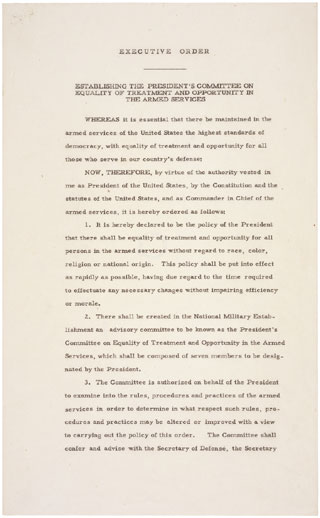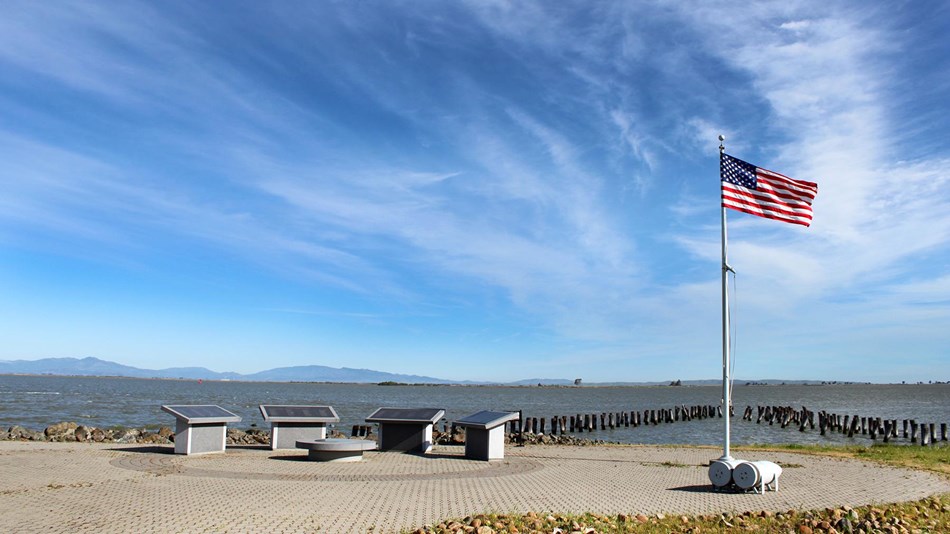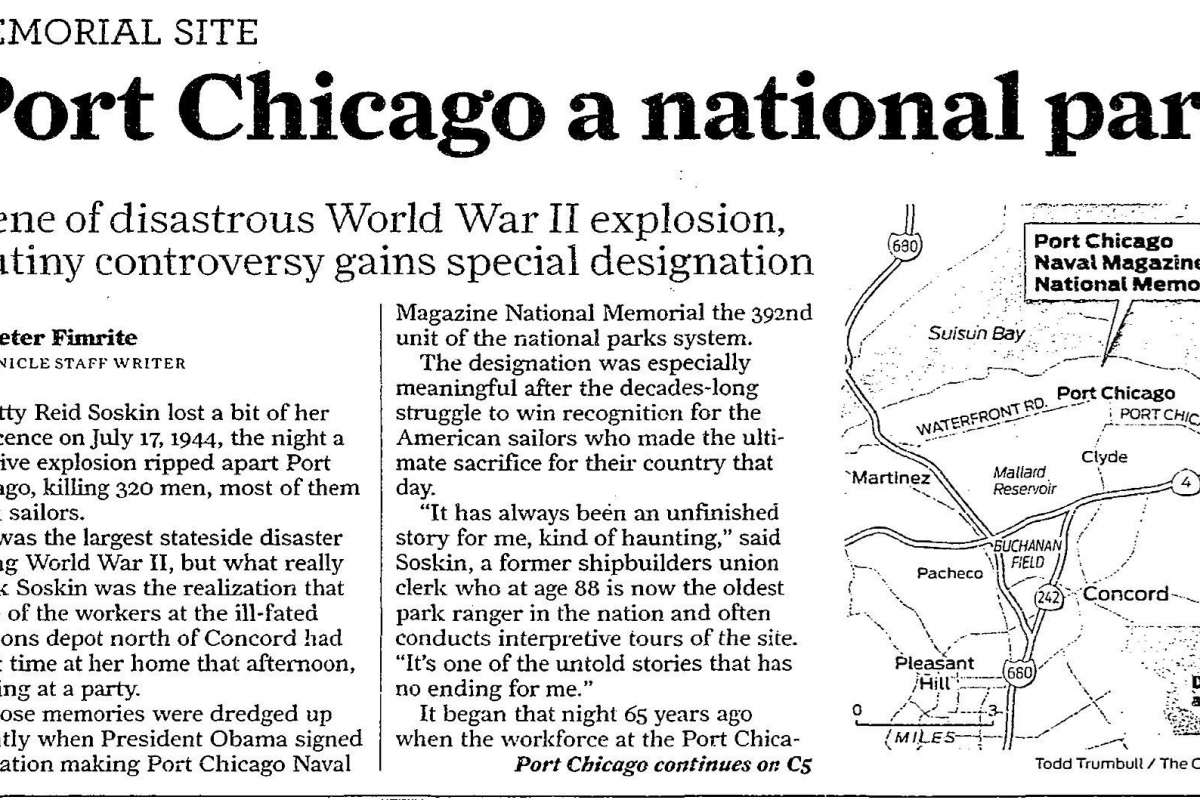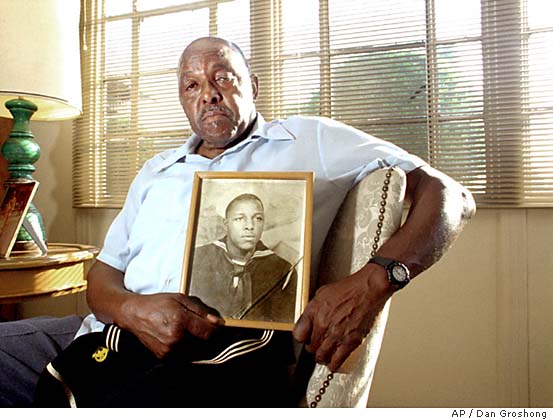The protests surrounding the Port Chicago disaster prompted President Truman to pass Executive Order 9981 in 1948, three years after the end of the war, which integrated all Armed Forces. The Navy and Air Force were first to follow this order but the Army resisted, only completely integrating during the Korean War.
(Source) Military Times

Executive Order 9981 (Source) National Archives
"There shall be equality of treatment and opportunity for all persons in the armed forces without regard to race, color, religion, or national origin."
~ Executive Order 9981



